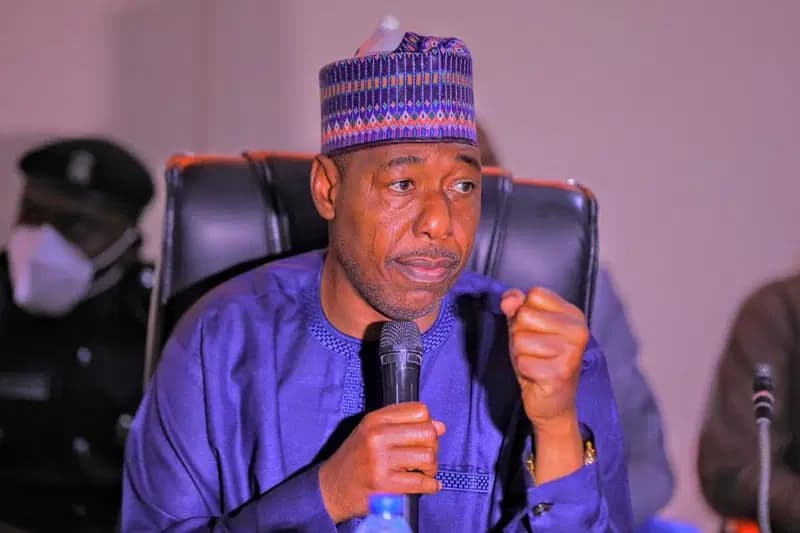On Sunday, May 18, 2025, Borno State Governor Babagana Zulum announced a significant initiative, declaring Monday a day of voluntary fasting and prayer across the state. This heartfelt call urges residents to come together in a collective spiritual effort to seek divine intervention for peace and security in a region long plagued by challenges. As Borno continues to grapple with the devastating effects of insurgency and insecurity, this move underscores the governor’s commitment to fostering unity, hope, and resilience among the state’s diverse population. In this blog post, we delve into the details of this announcement, its significance, and the broader context of Borno’s ongoing struggle for stability.
The Announcement: A Spiritual Appeal for Peace
Governor Zulum’s declaration was made public on May 18, 2025, as a direct response to the persistent security challenges facing Borno State. The initiative encourages residents, regardless of religious or ethnic affiliations, to participate in a day of voluntary fasting and prayer. The governor’s message is clear: unity in seeking divine guidance can serve as a powerful tool to address the state’s pressing issues. By setting aside a specific day for this collective spiritual exercise, Zulum aims to galvanize the people of Borno to channel their hopes and aspirations for a peaceful future.
The call for fasting and prayer is voluntary, reflecting an inclusive approach that respects individual beliefs while emphasizing a shared goal. For many residents, this initiative resonates deeply, as faith plays a central role in the lives of Borno’s people. Whether through Islamic prayers, Christian supplications, or other spiritual practices, the governor’s appeal seeks to harness the power of collective faith to inspire hope and resilience.
Why Fasting and Prayer? The Cultural and Spiritual Context
Fasting and prayer are deeply rooted traditions in Nigeria, particularly in regions like Borno, where religious faith is a cornerstone of community life. In Islam, fasting is a means of seeking closeness to Allah, purifying the soul, and invoking divine mercy. Similarly, in Christianity, fasting and prayer are acts of devotion, often undertaken to seek God’s guidance and intervention in times of crisis. By framing the initiative as a voluntary act, Governor Zulum ensures that it transcends religious boundaries, inviting all residents to participate in a way that aligns with their beliefs.
In the context of Borno’s challenges, this spiritual appeal is particularly poignant. The state has been at the epicenter of the Boko Haram insurgency for over a decade, enduring violence, displacement, and economic hardship. The governor’s call for fasting and prayer serves as both a symbolic gesture and a practical effort to rally the community. It acknowledges the emotional and psychological toll of insecurity while offering a pathway for collective healing and renewed determination.
Borno’s Security Challenges: The Backdrop of the Initiative
To fully appreciate the significance of Governor Zulum’s announcement, it’s essential to understand the security situation in Borno State. Since 2009, Boko Haram and its offshoots, including the Islamic State West Africa Province (ISWAP), have wreaked havoc across Nigeria’s northeast. Borno, as the birthplace of the insurgency, has borne the brunt of the violence. Thousands of lives have been lost, millions have been displaced, and entire communities have been devastated.
Despite efforts by the Nigerian military and government to curb the insurgency, sporadic attacks on civilians, security forces, and infrastructure continue. In recent years, Governor Zulum has been vocal about the need for innovative solutions to restore peace, including community-driven initiatives and rehabilitation programs for repentant insurgents. His administration has also prioritized rebuilding infrastructure and resettling displaced persons, but the persistent threat of violence remains a significant obstacle.
The declaration of a day of fasting and prayer comes at a time when Borno’s residents are yearning for stability. While military operations and policy interventions are critical, Zulum’s initiative recognizes the importance of addressing the spiritual and emotional needs of the population. By fostering a sense of shared purpose, the governor hopes to strengthen the social fabric of the state and inspire resilience in the face of adversity.
Join our Whatsapp channel to stay updated always!


